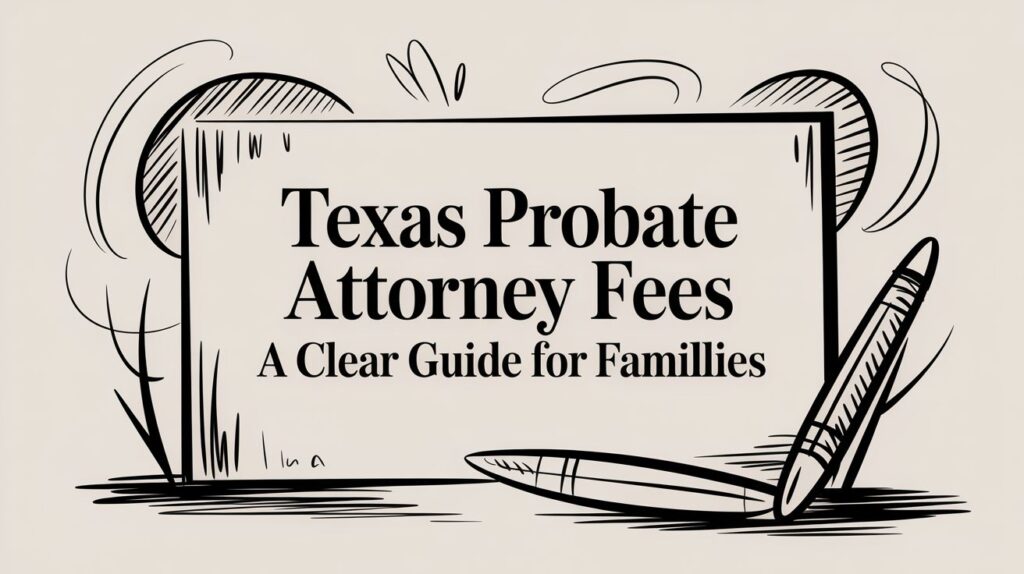If you’ve been named the executor of an estate in Texas, particularly one that includes real estate, it can be a complex and sometimes daunting responsibility. Executor duties requires careful attention to detail and a good understanding of probate laws and procedures in Texas. This article provides a comprehensive checklist to help you manage the real estate component of an estate in Texas probate efficiently.
1. Understand Your Role as Executor
An executor’s job is to carry out the instructions of the deceased’s will and manage the estate, ensuring all debts are paid and that the remaining assets are distributed to the beneficiaries. In Texas, executors are responsible for a broad array of duties, including those related to real estate. Executors may be called “personal representatives” and can be either appointed by the decedent in their will or by the court if no will is present.

Key Executor Responsibilities in Texas:
- Gather and inventory all estate assets.
- Pay any outstanding debts and taxes.
- Distribute remaining assets according to the will or Texas state law.
- Communicate regularly with beneficiaries and the court.
The executor must act in a fiduciary capacity, which means they have a legal duty to act in the best interest of the estate and beneficiaries.
2. Confirm the Existence of Real Estate in the Estate
If the decedent owned real estate, it’s vital to establish this early in the probate process. Real estate can include any land, buildings, or homes owned by the deceased. In Texas, real property often passes through probate unless it has been arranged otherwise, such as by joint tenancy, beneficiary designation, or trust.
Steps to Confirm Real Estate Ownership:
- Examine the Will: Look for any specific instructions regarding real estate.
- Check Property Records: Verify ownership through property records, which can be accessed at the county clerk’s office.
- Identify Ownership Type: Determine if the property was solely owned or jointly held, as jointly held property with rights of survivorship may bypass probate.
3. File for Probate in the Appropriate Texas Court
In Texas, the probate process is initiated by filing the decedent’s will (if there is one) with the probate court in the county where the deceased resided. If no will exists, Texas intestacy laws will dictate how the estate, including real estate, is distributed.
Initiate Probate by:
- Submitting the Will to Probate Court: Within four years from the date of death.
- Filing a Petition: The petition for probate is typically filed by the executor named in the will or, if no will exists, an interested party.
- Obtaining Letters Testamentary or Letters of Administration: These documents grant the executor authority to manage the estate, including handling real estate transactions.
4. Create a Detailed Inventory of Estate Assets
Once probate is granted, the executor must prepare an inventory, appraisement, and list of claims, which include all assets and liabilities in the estate.
Real Estate Inventory Tips:
- Value the Property: Hire a licensed appraiser to get an accurate valuation of the real estate.
- Include Mortgage and Liens: Record any outstanding mortgages or liens against the property, as these affect the estate’s net value.
- Identify Property Location: Specify the exact location and description of each real estate asset.
5. Manage and Protect Real Estate During Probate
As executor, it’s your responsibility to safeguard and manage the real estate during the probate process. This can involve taking physical care of the property, securing it against potential vandalism or damage, and ensuring it’s insured. If the property requires maintenance or repairs, the executor may authorize reasonable expenses for upkeep.
Key Management Duties:
- Secure the Property: Change locks if necessary and ensure the property is safeguarded.
- Maintain Insurance: Keep home insurance active to protect against potential losses.
- Handle Property Expenses: Pay any property-related expenses, such as utilities, property taxes, and HOA fees, from estate funds.
6. Determine if the Property Should be Sold

In some cases, the property may need to be sold to pay off estate debts or distribute assets equitably. In Texas, the executor has authority to sell real estate if the will grants this power, or if the court approves the sale.
Selling the Property:
- Get Court Approval (if required): If the will doesn’t specifically grant you authority to sell, you’ll need court approval.
- Market and Sell the Property: Hire a licensed real estate agent to market the property and manage the sale.
- Handle Proceeds of Sale: Deposit the proceeds into the estate’s account, which will later be used for distribution or paying off debts.
7. Pay Estate Debts and Taxes
Before distributing any assets to beneficiaries, it’s crucial to settle all estate debts. This may include property taxes, mortgages, and other liens associated with real estate. Texas has specific rules governing the payment of debts from an estate, which prioritize certain creditors over others.
Settling Debts Related to Real Estate:
- Mortgage Payments: Pay any outstanding mortgage from the estate, or communicate with the mortgage lender if the property will be sold.
- Property Taxes: Ensure all property taxes are paid up to date.
- Pay Off Liens: Any liens against the real estate must be satisfied to clear the title for sale or transfer to heirs.
8. Transfer Property Title to Heirs or Beneficiaries
If the property is not sold and is to be distributed to beneficiaries, the executor must arrange for the legal transfer of ownership. This process typically involves preparing a new deed and filing it with the appropriate county records office.
Steps to Transfer Title:
- Prepare a New Deed: Draft a deed that transfers ownership from the estate to the beneficiary or heir.
- File the Deed with the County: File the deed with the county clerk to officially record the change in ownership.
- Provide Clear Title: Ensure there are no liens or claims that would affect the title transfer.

9. Distribute Remaining Assets and Close the Estate
Once all debts, taxes, and expenses are paid,the executor distributes the remaining assets, including any real estate, according to the will or Texas law. After distribution, a final accounting of the estate is presented to the probate court, and the estate can be closed.
Final Steps:
- Provide Beneficiaries with Their Share: Transfer real estate or sale proceeds as directed by the will or court.
- File Final Accounting: Prepare a detailed report of all transactions, including the handling of real estate.
- Obtain Court Approval to Close: Once all assets are distributed, petition the court to close the estate.
Conclusion
Being an executor in Texas probate can be a demanding role, especially when real estate is involved. By following this checklist, you can navigate the complex steps of probate with more confidence and clarity. Consulting with professionals such as probate attorneys and real estate agents is also recommended to ensure compliance with Texas laws and to manage real estate efficiently. As an executor, staying organized and thorough is crucial to fulfilling your duties effectively and honoring the wishes of the deceased.








